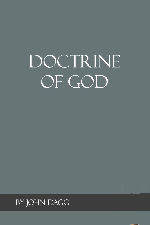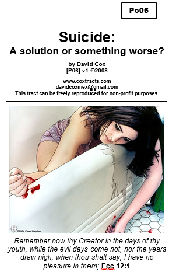Beardsley A Mighty Winner of Souls deals with issues in soul winning as per the soul winning character of Finney.
Beardsley A Mighty Winner of Souls
By Frank Grenville Beardsley
A Mighty Winner of Souls
By Frank Grenville Beardsley
Table of Contents
Title Page
Preface
Chapter 1 Early Life
Chapter 2 “Behold, He Prayeth”
Chapter 3 God’s Advocate
Chapter 4 Winning Souls For Christ
Chapter 5 Opposition To New Measures
Chapter 6 Evangelistic Labors
Chapter 7 Pastorate In New York
Chapter 8 A School In The Wilderness
Chapter 9 Subsequent Evangelistic Labors
Chapter 10 Finney As An Evangelist
Chapter 11 Personalia
Excerpt from Beardsley A Mighty Winner of Souls
A Mighty Winner of Souls
By Frank Grenville Beardsley
Chapter 6
EVANGELISTIC LABORS
ALTHOUGH the convention at New Lebanon had been characterized by more or less acerbity of spirit, as has been stated, it did not affect seriously the revival which was then in progress. From New Lebanon the work extended to Stephentown where Mr. Finney labored for a time with excellent results.
Before he went to Stephentown, the Rev. Mr. Gilbert, pastor of the Presbyterian Church in Wilmington, Delaware, visited his father who resided in New Lebanon. So deeply impressed was he by the character of Finney’s work that he gave him an urgent invitation to labor with his church at Wilmington. At the close of his labors at Stephentown this invitation was accepted and as a consequence an extensive revival visited that church and community.
While at Wilmington Mr. Finney was invited to Philadelphia. At first he preached
but twice a week, alternating his services between that city and Wilmington, going back and forth by boat on the Delaware River. The interest soon became such, however, that he was obliged to devote his whole time to the work in the City of Brotherly Love.
The Rev. James Patterson, with whose church he labored at first in Philadelphia, held to the old school theology of the Presbyterians, whose views were then in the ascendency at Princeton. Soon after the commencement of his labors, Mr. Patterson said, “Brother Finney if the Presbyterian ministers in this city find out your views and what you are preaching, they will hunt you out of the city as they would a wolf.”
Matters, however, did not turn out as Mr. Patterson had predicted. On the contrary Finney was invited to preach in nearly every Presbyterian church in the city. One sermon, There is one God and one Mediator between God and Man, he was asked to repeat seven different evenings in succession in as many different churches. Finally it was decided that he should confine all of his efforts to some one church centrally located. A large German church was placed at his disposal and it became the scene of many triumphs. The whole city was stirred. His congregations often numbered three thousand persons and upwards. Multitudes among all classes of society were converted. Mr. Finney labored in Philadelphia until the winter of 1828-1829, having spent nearly a year and a half in the city.
In the spring of 1828 the lumbermen who came down the Delaware River with their rafts heard of the revival in Philadelphia and attended some of the meetings. A number of these men were converted and on their return to the lumber camps told the story of salvation. Although there were no churches or ministers among them, a revival commenced which extended eighty miles along the river. Within two years five thousand persons were converted solely through the
instrumentality of the men who had accepted the Gospel in Finney’s meetings at Philadelphia.
During the winter of 1828-1829 Finney conducted successful revivals in Reading and Lancaster, Pennsylvania; and in Columbia, New York, as a result of his visit nearly every one in the town was converted. The City of Galesburg, Illinois, was settled by a colony of persons from Columbia, most of whom had been converted in this revival. With Mr. Gale, Finney’s former pastor and theological instructor, they went to the prairies of Illinois and there laid the foundations of the town and college.
The following summer while on a visit to his wife’s parents in Oneida County, the revivalist was invited by Anson G. Phelps, the philanthropist, to labor in New York. His methods were regarded by most of the ministers of the city with more or less suspicion and not a church would invite him. So Mr. Phelps hired a vacant Presbyterian church on Vandewater Street. Two or three months later a Universalist church in the neighborhood of Niblo’s Garden was offered
for sale under foreclosure of mortgage, and this building was purchased and fitted up for Finney’s use. Here he preached for about fifteen months. Night after night the church was crowded and multitudes were hopefully converted.
During Finney’s stay in New York at this time Arthur Tappan, the philanthropist, formed a lifelong attachment for Finney. His brother, Lewis, who lived in Boston, was a Unitarian and a member of Dr. William Ellery Channing’s church.
Rev. Henry Ware, who had visited western New York, informed Lewis that Mr. Finney, who had been preaching at Auburn and elsewhere, had announced himself a “brigadier general of Jesus Christ.” Of this he had been told by a Unitarian clergyman in Oneida County, who assured him that the story was absolutely true. Not long afterwards when in New York he reported this story to his brother Arthur, who pronounced it a fabrication and said that innumerable fictitious stories were circulated about Mr. Finney by those who were opposed to his preaching and measures.
Having unbounded confidence in Mr. Ware, as a cautious, candid, and truthful man, Lewis said to his brother, “I will wager five hundred dollars that the story is true.” Arthur replied: “You know that I am not a betting man, but if you can prove by credible testimony that the reports about Finney are true, I will give you five hundred dollars. I make this offer to lead you to investigate. I want you to know that these stories are utterly unreliable.”
Lewis Tappan thereupon wrote to Mr. Ware’s informant in Oneida County asking for evidence of the truthfulness of the report, “such evidence as would lead to the conviction of a party in a court of justice,” and authorizing him to procure it regardless of expense. Of the outcome Tappan wrote: “He undertook the task with commendable zeal, and prosecuted his inquiries from Albany to Buffalo. It is unnecessary to relate the details of the laborious investigation. Suffice it to say, the only evidence he was able to produce, was a small Universalist newspaper, printed in Buffalo, in which it was charged, on anonymous authority, that Mr. Finney had made the absurd and impious declaration.”
As a consequence Lewis Tappan was led to review his whole position, with the result that he was soon converted and changed his views from Unitarianism to orthodoxy. Throughout the remainder of his life he was a devoted friend of Finney.
One of the results of the revival in New York was the Presbyterian Free Church movement. Impressed by “the almost total exclusion of the poor from the Presbyterian and Dutch churches; the great neglect of the careless and impenitent on the part of professing Christians; and the importance of more direct and faithful efforts for their conversion,” a small group of men united in the formation of the First Free Presbyterian Church, which should be supported by voluntary contributions, and the seats of which should be free, whence the name, the Free Presbyterian Church. Such was the growth of this church that within two years the Second Free Presbyterian Church was formed. Within five years five such churches had been organized. In February, 1835, Lewis Tappan wrote to the English commissioners who came to study the state of religion in America, “A new church might be organized in this city every year, out of each of the Free churches, provided suitable ministers could be obtained.”
In the summer of 1830, while again visiting in Oneida County, Mr. Finney was invited to supply for a time the pulpit of the Third Presbyterian Church at Rochester. He was disinclined at first to accept the invitation. The outlook was most unpromising. The church was in a low state spiritually and a spirit of dissension existed among the Presbyterian churches of the city. At a loss to know just what should be done, he went to Utica to confer with several of his friends in whose judgment he placed the highest confidence. Their views seemed to coincide with his own, and he had about made up his mind to decline the invitation, but after a more mature deliberation on the matter he was convinced that the reasons for which he was holding back were, after all, the very reasons why he ought to accept the invitation. So, much to the surprise of the friends whom he had consulted, he finally decided to go. A most remarkable revival attended his labors.
Upwards of twelve hundred members were received into the churches of the Rochester Presbytery besides great numbers who united with churches of other denominations.
Charles P. Bush, who afterwards became an influential minister in New York, but at that time was a student in the Rochester Academy and had united with the Third Presbyterian Church under Mr. Finney’s ministry, wrote:
“The whole community was stirred. Religion was the topic of conversation, in the house, in the shop, in the office, and on the street …. The only theatre in the city was converted into a livery stable; the only circus into a soap and candle factory.
Grog shops were closed; the sabbath was honored; the sanctuaries were thronged with happy worshippers; a new impulse was given to every philanthropic enterprise; the fountains of benevolence were opened, and men lived to do good.
“And it is worthy of special notice that a large number of the leading men of the place were among the converts–the lawyers, the judges, physicians, merchants, bankers, and master mechanics. These classes were more moved from the very first than any other. Tall oaks were bowed as by the blast of the hurricane. Skeptics and scoffers were brought in, and a large number of the most promising young men. It is said that no less than forty of them entered the ministry ….
“It is not too much to say that the whole character of the city was changed by that revival. Most of the leaders of society being converted, and exerting a controlling influence in social life, in business, and in civil affairs, religion was enthroned as it has been in few places …. Even the courts and the prisons bore witness to its blessed effects. There was a wonderful falling off in crime. The courts had little to do, and the jail was nearly empty for years afterward.”
The influence of this revival was felt throughout the length and breadth of the land. The great cities especially were moved. It was estimated that more than fifteen hundred towns and cities were blessed with revivals of religion and as many more felt the impulse of the movement. During the first five months fifty thousand were converted, and before the movement had spent its force more than one hundred thousand had been gathered into the churches of the nation.
Underlying this mighty work of grace was a spirit of prevailing prayer, of which Finney wrote:
“When I was on my way to Rochester, as we passed through a village, some thirty miles east of Rochester, a brother minister whom I knew, seeing me on the canal-boat, jumped aboard to have a little conversation with me, intending to ride but a little way and return.
He, however, became interested in conversation, and upon finding where I was going, he made up his mind to keep on and go with me to Rochester. We had been there but a few days when this minister became so convicted that he could not help weeping aloud, at one time, as he passed along the street. The Lord gave him a powerful spirit of prayer, and his heart was broken. As he and I prayed much together, I was struck with his faith in regard to what the Lord was going to do there. I recollect he would say, ‘Lord, I do not know how it is; but I seem to know that Thou art going to do a great work in this city.’ The spirit of prayer was poured out powerfully, so much so, that some persons staid away from the public services to pray, being unable to restrain their feelings under preaching.”
Among those who were associated with him in this way in Rochester and at Auburn, where he went immediately afterwards, was Mr. Abel Clary, a ministerial licentiate whom Finney had known intimately from boyhood and who had been converted in the same revival. Like “Father” Nash he was a man mightily given to prayer. Although he was an educated man he did not attempt to preach much and seldom even appeared in public. He was so burdened for the souls of men that he gave almost his entire time and strength to intercession. When Finney would be preaching he would be apart by himself agonizing and praying for an outpouring of the Spirit of God in the salvation of souls.
In 1842 and 1855 Mr. Finney again conducted revivals in the city of Rochester with notable results. In 1842 the invitation came from the lawyers of the city while he was passing through Rochester en route to Oberlin. This invitation he decided to accept. During the progress of his work the Rev. Jedidiah Burchard, an eccentric evangelist who was popular for some years in New York and New England, also labored in the city, but as entirely different classes were reached by these two men, their efforts proved mutually supplemental and as a consequence the religious interests throughout the city were greatly quickened.
Finney was requested to deliver a series of lectures adapted to the needs of the legal profession. He had been forewarned that many of the lawyers were Deists who, accepting the philosophy of Tom Paine and rejecting the Bible, were merely curious to know what sort of argument a lawyer would put up in behalf of religion. He accordingly took as the subject of his first discourse, Do We Know Anything? For nine consecutive sessions of two hours each he laid down his premises and drew his conclusions from the dictates of common sense and the facts of common experience.
Having shown in this manner the inevitable consequences of the infractions of the Moral Law, he turned to the Bible and the plan of salvation which it revealed, emphasizing its teachings as to the love of God and His fatherly solicitude for sinning men. Then he said: “This is the book which you have removed from your shelves to make room for Tom Paine’s shallow ‘Age of Reason!’ How can you escape if you neglect so great salvation?” A powerful impression was made and the interest deepened from night to night as the lectures progressed.
Among the attendants was Judge Addison Gardner of the New York Court of Appeals who during Finney’s first visit to Rochester had strongly opposed the “anxious seat.” As he attended these lectures from night to night Finney cherished the hope that he might be converted. One evening, when he was speaking in a way especially applicable to the Judge, he observed that he had vacated his seat and he supposed that he had gone home; but just as Finney was drawing his address to a close the Judge, who had ascended a narrow stairway from the basement to the back of the pulpit, plucked at the skirt of Finney’s coat and said, “Mr. Finney, I wish you would pray for me by name, and I will take the anxious seat.”
Nothing had been said by Finney about an anxious seat and when he announced to his audience what the Judge had said, a profound impression was created, and as the Judge knelt in front of the pulpit the lawyers present, rising up almost en masse and filling the aisles and vacant space about the pulpit, expressed a desire to consecrate their lives to the service of Jesus Christ.
Large numbers of the better class of citizens were reached by this revival. The churches of the various religious denominations shared in its fruits. Dr. Whitehouse, afterwards Bishop of Illinois, was rector of Saint Luke’s Episcopal Church in Rochester at that time. Seventy of the prominent members of his church were confirmed, nearly all of whom had been converted in Finney’s meetings. All told, about a thousand conversions were reported throughout the city.
In the autumn of 1855 Mr. Finney was invited for the third time to labor in Rochester. At first he was disinclined to accept the invitation, but finally was prevailed upon to attempt another season of revival effort in that city. He continued his labors for a period of three months and was warmly supported by pastors of the Presbyterian, Congregational, and Baptist churches. The influence of the revival became all-pervasive. A considerable number of students in the University of Rochester were converted, and by special request Mr. Finney delivered a series of lectures to lawyers on The Moral Government of God, as a result of which a number of leading attorneys were influenced to embrace religion.
Of this revival Professor William Cleaver Wilkinson, who at that time was a student in the University of Rochester, wrote: “The interest was extraordinary. The city was taken possession of. Scarcely anything else was talked about. The atmosphere was full of a kind of electricity of spiritual power. The daily papers all reported the meetings at great length.
The railroads at one time, I remember, were obstructed by a snowstorm, which detained large numbers of passengers temporarily in the city. A large proportion of these were attracted into the meetings. The result was that a great many, during this brief interval, were converted. People accosted each other on the street, and began an exchange of question and reply on the subject of personal religion, as naturally and easily almost as in time of commercial distress they would talk of the financial condition of the country; or to use an apter illustration, as in a time of epidemic disease they would talk of their own health and that of their families and friends.”
The influence of this revival, as in the two preceding ones, was far reaching. Merchants arranged to have their clerks attend. Many of the railroad men of the city became deeply interested in the services, and much of the Sunday business of the roads was suspended so the men could attend to the salvation of their souls. The ladies of the city did their utmost to bring all classes to the meetings and to Christ. Some of them visited stores and business places to secure the attendance at the meetings of those engaged there. One thousand persons were led to unite with the churches in the city of Rochester, while the influence of the work extended to the towns and cities in the outlying districts.
Mr. Finney always had a high regard for the city of Rochester. It is said that in his old age nothing seemed to rouse him more than mention of that city. He would inquire after his spiritual children there, the converts of his various revivals, and would ask whether they were true to their earlier professions and if they still were laboring in the vineyard of the Lord.
Then he would go over some of the scenes and incidents of those early days, relating with great minuteness and accuracy how one and another wrestled against his convictions and how finally they were subdued by divine grace. He wrote of his revivals there:
“What was quite remarkable in the three revivals that I have witnessed in Rochester, they all commenced and made their first progress among the higher classes of society. This was very favorable to the general spread of the work, and to the overcoming of opposition.
“I never preached anywhere with more pleasure than in Rochester. They are a highly intelligent people, and have ever manifested a candor, an earnestness, and an appreciation of the truth excelling anything I have seen, on so large a scale, in any other place. I have labored in other cities where the people were more highly educated than in Rochester. But in those cities the views and habits of the people were more stereotyped; the people were more fastidious, more afraid of measures than in Rochester. In New England I have found a high degree of general education, but a timidity, a stiffness, a formality, and a stereotyped way of doing things, that has rendered it impossible for the Holy Spirit to work with freedom and power.” …more in the work itself…
Table of Contents Beardsley A Mighty Winner of Souls
Title Page
Preface
Chapter 1 Early Life
Chapter 2 “Behold, He Prayeth”
Chapter 3 God’s Advocate
Chapter 4 Winning Souls For Christ
Chapter 5 Opposition To New Measures
Chapter 6 Evangelistic Labors
Chapter 7 Pastorate In New York
Chapter 8 A School In The Wilderness
Chapter 9 Subsequent Evangelistic Labors
Chapter 10 Finney As An Evangelist
Chapter 11 Personalia


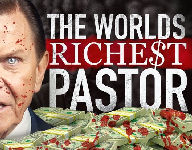 Ministerial Requirement Not Covetous
Ministerial Requirement Not Covetous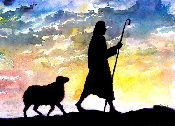
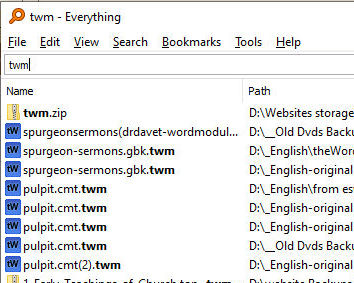 Helpful Windows User Tip for "Searching Everything" on your PC.
Helpful Windows User Tip for "Searching Everything" on your PC.